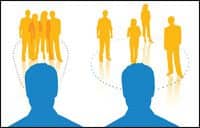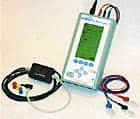September 18, 2007
England’s Department of Health announced it has screened the hearing of 2 million babies thanks to the Newborn Hearing Screening Programme (NHS), a program deployed in 2001 that screens 1,700 babies daily.
The Department of Health (DH) reports this is one of the biggest achievements in children’s audiology and services for deaf children and their families in the last 40 years.
According to a news release from the DH, the program has identified more than than 3,400 babies with permanent hearing impairment or deafness. The program offers parents the opportunity to have their baby’s hearing screened shortly after birth, and the DH reports more than 99% of parents take advantage of the screenings.
"This is a major achievement and reinforces how the Newborn Hearing Screening Programme sets the standard for others around the world," says Dr Anne Mackie, screening programmes director of the UK National Screening Committee. "Knowing early whether their baby has deafness or hearing impairment is hugely important for many parents. It enables them to make important informed decisions for them and their child’s future and improves their life chances."
The major problem with late identification is the effect on the development of language, speech and communication. A delay in identification means a delay in establishing effective communication with the child. This in turn can have a long term impact on their social, emotional and educational development. The impact on the family is also substantial.
A trained hearing screener tests a baby’s hearing using two quick and simple tests to see if there is a need for further investigation. These are called the Automated OtoAcoustic Emissions test (AOAE), which is used for all babies, and then the Automated Auditory Brainstem Response test (AABR), which is a conditional test. Both tests are painless for the baby and can be done while the baby is sleeping.
The hearing screening program in England is the largest integrated programme of universal newborn hearing screening in the world, according to the DH.
Source: England Department of Health




